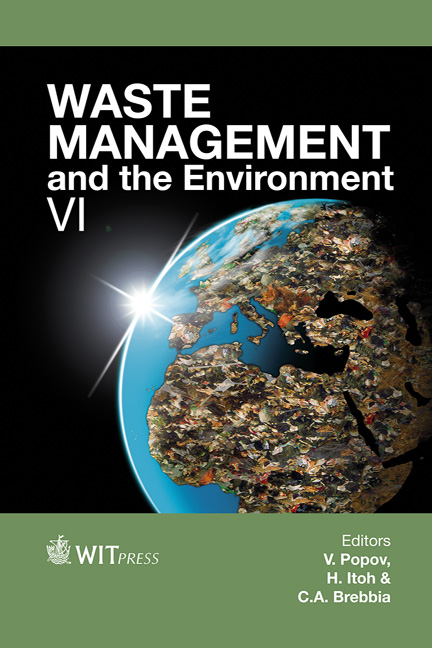Utilization Of Waste Spent Hydroprocessing Catalyst: Development Of A Process For Full Recovery Of Deposited Metals And Alumina Support
Price
Free (open access)
Transaction
Volume
163
Pages
13
Page Range
237 - 249
Published
2012
Size
856 kb
Paper DOI
10.2495/WM120221
Copyright
WIT Press
Author(s)
M. Marafi, M. S. Rana, R. Navvamani & H. Al-Sheeha
Abstract
An emphasis has been placed on investigation spent hydroprocessing catalyst recovery due to environmental regulations which register spent catalysts as hazardous waste materials. Kuwait refinery produces ca. 6000 ton/year spent catalysts from the bottom of the barrel (ARDS) processes, which contain valuable metals such as molybdenum, vanadium, nickel or cobalt etc. These catalysts are not viable to regenerate mainly due to the metal deposition. The present study is carried out on industrial spent residue hydroprocessing (ARDS) catalysts that contain high levels of metals. The possibility of recycling total spent catalysts (TSC) was studied by using various steps such as deoiling, drying, grinding, sieving and decoking. In the subsequent steps, the digested spent catalysts were treated with acid-base reactions in order to separate the various components of the spent catalyst. Using various leaching reaction conditions such as acid-base concentration, reaction pH in aqueous as well as organic mediums were studied. The metals were leached out in the solution while alumina support was recovered as bulk solid in the form of boehmite. The recovered alumina is further treated hydrothermally and recovered as boehmite, samples were characterized by surface area, pore volume, and pore size distribution measurements. Hence, recovery of valuable metals from the spent catalysts is an attractive option for their recycling and utilization. Therefore, TSC recovery is not only important from an environmental point of view but also very vital from an economic viewpoint. Keywords: spent catalyst, recycling, hazardous waste, residue hydroprocessing, waste utilization.
Keywords
spent catalyst, recycling, hazardous waste, residue hydroprocessing,waste utilization.





